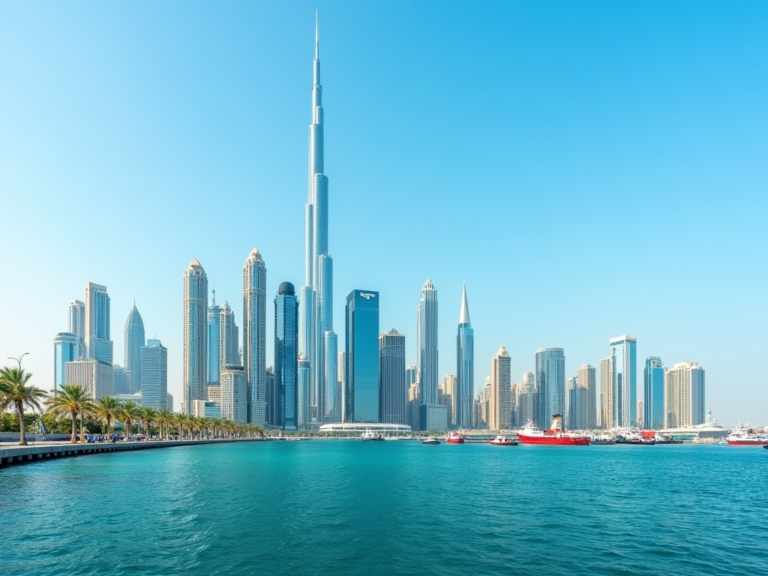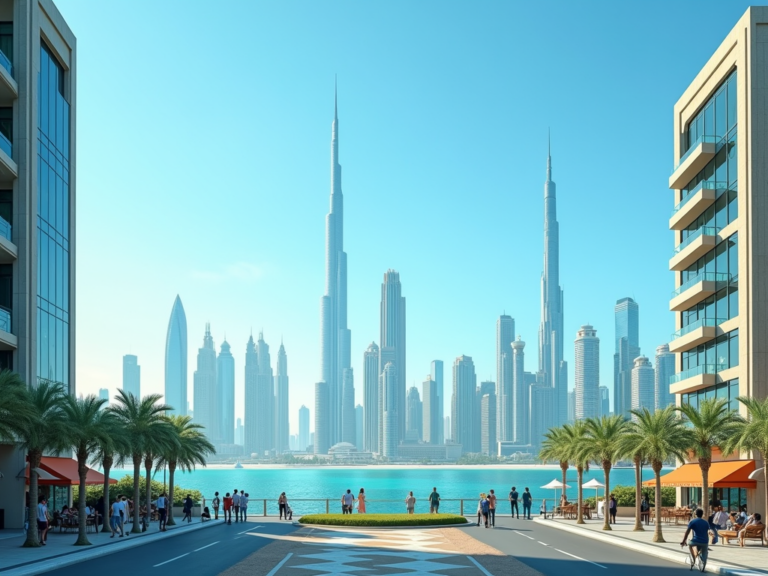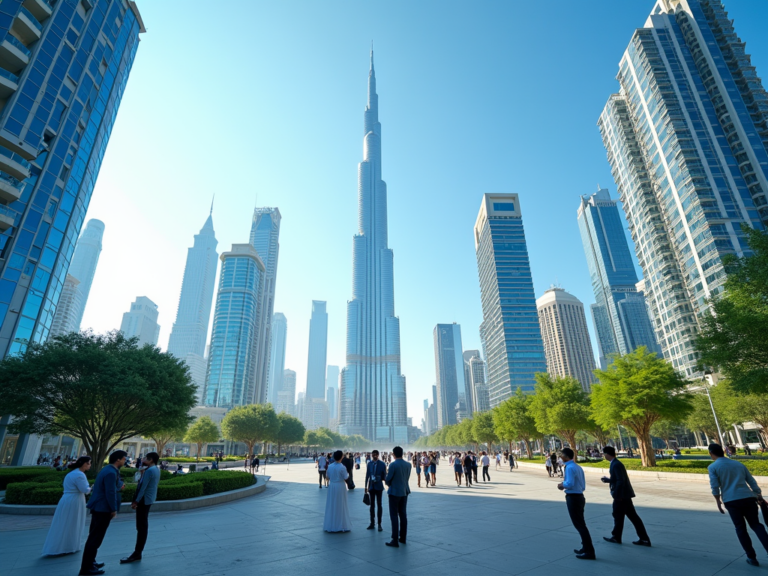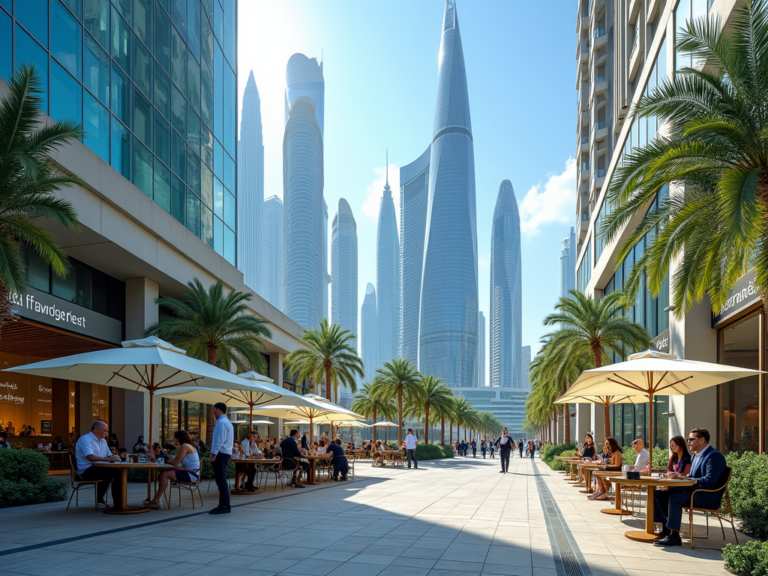Dubai’s transformation from a modest trading port to a formidable global financial powerhouse is nothing short of remarkable. This evolution is the result of strategic foresight, extensive infrastructure development, and robust policy frameworks that attract international business and investment. Today, Dubai boasts a thriving economy characterized by a high standard of living, diverse industries, and a reputation as a major hub for finance, tourism, and trade. In this article, we will delve into the key factors that have driven Dubai’s ascent in the global financial landscape.
Strategic Location and Trade History
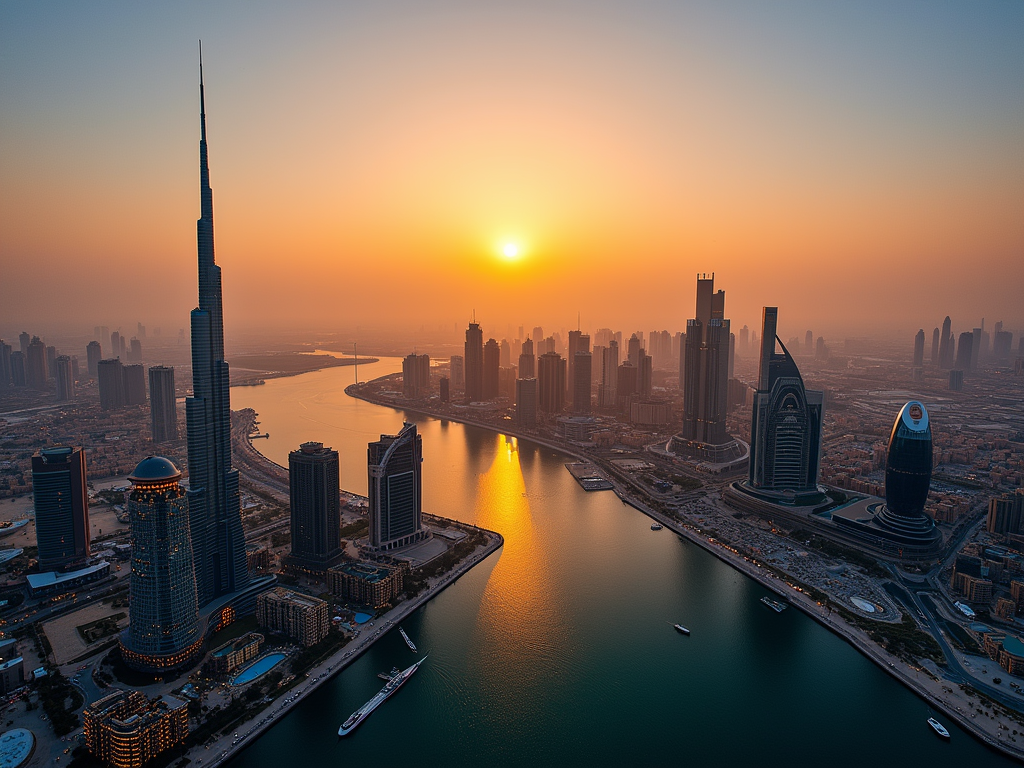
One of the primary reasons for Dubai’s financial success is its strategic geographical location. Situated at the crossroads of Europe, Asia, and Africa, Dubai serves as a vital conduit for trade. The city has a rich history dating back to the early 20th century when it was established as a trading port. This historical background laid the groundwork for eventually becoming a leading business hub. Key factors that enhance Dubai’s positioning include:
- Access to Major Markets: Dubai’s proximity to emerging markets makes it an attractive base for foreign investors.
- World-Class Infrastructure: The city boasts state-of-the-art ports and airports that facilitate seamless trade.
- Robust Logistics Sector: Investments in logistics and transport have further accelerated trade efficiency.
These elements combined have allowed Dubai to establish itself as a vital player in global commerce, attracting businesses from various sectors looking for a strategic location to penetrate other markets.
Investment in Infrastructure

Dubai has made remarkable investments in infrastructure, which have played an essential role in its rise as a financial powerhouse. The government has prioritized the development of world-class facilities, including modern skyscrapers, high-speed transport systems, and advanced telecommunications networks. Some notable investments include:
- The Dubai International Airport: One of the busiest airports globally, serving millions of passengers annually.
- The Dubai Metro: An efficient public transport system that enhances connectivity within the city.
- Financial Districts: Areas like Business Bay and the Dubai International Financial Centre (DIFC) are designed specifically for financial enterprises.
This extensive infrastructure not only improves the quality of life for residents but also creates an appealing business environment that attracts multinational corporations and investors.
Business-Friendly Regulatory Environment
Another critical factor in Dubai’s financial ascent is its business-friendly regulatory environment. The government has implemented various reforms to make it easier for companies to operate in the city. Key features include:
- No Personal Income Tax: Dubai’s tax policies attract high-net-worth individuals and multinational corporations.
- 100% Foreign Ownership: Regulations allowing full foreign ownership in free zones encourage business investment.
- Streamlined Business Processes: Simplified procedures for starting and running a business foster a dynamic commercial ecosystem.
This supportive environment encourages both local and international businesses to thrive, significantly contributing to the city’s economic growth and stability.
Emergence of Financial Services
The financial services sector has been a cornerstone of Dubai’s economic strategy. The establishment of key institutions such as the Dubai Financial Market (DFM) and the DIFC has positioned Dubai as a leading financial center. These institutions attract investments and facilitate capital flows effectively. Notable aspects include:
- Diverse Financial Products: Availability of various financial instruments, including equity, bonds, and investment funds.
- Regulatory Oversight: Robust regulatory framework ensures transparency and protects investors.
- International Partnerships: Collaborations with global financial institutions enhance credibility and attract foreign investors.
The vibrant financial services landscape continues to be a magnet for foreign talent and capital, solidifying Dubai’s status as a global financial powerhouse.
Conclusion
Dubai’s remarkable transformation into a global financial powerhouse is attributed to its strategic location, significant infrastructure development, a favorable regulatory environment, and a burgeoning financial services sector. These elements have collectively created a conducive climate for business, drawing in international investment and expertise. As the city continues to evolve and innovate, it stands poised to maintain its status as a leading economic hub in the years to come.
Frequently Asked Questions
1. What industries drive Dubai’s economy?
Dubai’s economy is driven by several key industries, including tourism, real estate, aviation, trade, and financial services. Each sector plays a significant role in sustaining the overall economy.
2. How does Dubai’s tax environment benefit investors?
Dubai’s tax environment, characterized by no personal income tax and favorable corporate tax rates in free zones, provides significant financial incentives for both individuals and businesses to invest and establish operations in the city.
3. What are the prospects for Dubai’s financial sector in the future?
Dubai’s financial sector is expected to grow further due to continuous reforms, advancements in fintech, and its strategic role as a gateway to emerging markets, which will attract new investments and financial services.
4. How does Dubai attract foreign investments?
Dubai attracts foreign investments through its business-friendly policies, strategic location, world-class infrastructure, and established financial ecosystem, making it an appealing choice for global investors.
5. What role do free zones play in Dubai’s economy?
Free zones in Dubai offer various benefits, including full foreign ownership, tax exemptions, and simplified business processes. These zones are critical in attracting foreign investment and fostering economic diversification.

